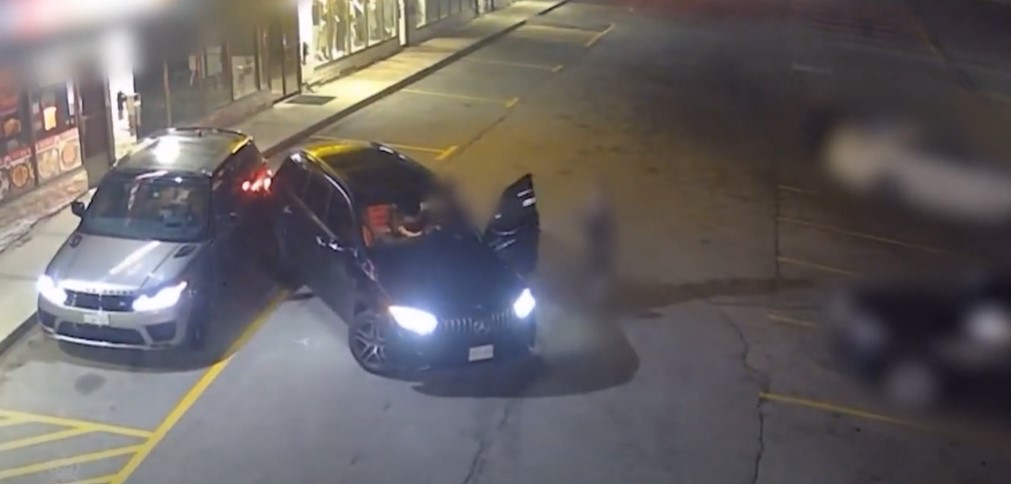Demand for Johnston meeting rooted in symbolic value of Crown to First Nations
Posted January 10, 2013 4:01 pm.
This article is more than 5 years old.
OTTAWA – The insistence of some native leaders that Gov. Gen. David Johnston take part in their meetings with Prime Minister Stephen Harper and government officials is rooted in a symbolism that reaches back to another time.
Two respected constitutional experts say the Crown has taken on almost mythological significance for some natives. They see the monarch or her representative as the guarantor of their treaty rights, someone they can appeal to over the heads of politicians and outside of politics.
In practical terms, the treaties and their responsibilities were taken over by the Canadian government generations ago, but the Crown remains a touchstone for many aboriginals.
Sebastien Grammond, dean of civil law at the University of Ottawa, says the treaties of the past were made in the name of the monarch. In the 19th century, negotiators invoked Queen Victoria, the Great Mother, “as a way of solemnizing the treaties.”
Peter Russell, a professor emeritus of political science at the University of Toronto, called it a tactic to lend more clout to the proceedings, to send the signal that the process extended beyond bureaucrats and politicians.
“They never said, ‘This is the government of Canada that wants to make a treaty with you,'” he said. “In the 19th century, it was the Great White Mother.”
Grammond said the Crown took on greater importance in native eyes.
“It was more or less the same thing as the Great Spirit. The reference to the Queen acquired a more or less spiritual value, as bizarre as this might seem to us today. It participated in the sacred nature of treaties in the eyes of indigenous peoples to say they were made in the name of the Great Mother the Queen.”
As time went by, Russell said, the royal connection became more important for some aboriginals.
It became increasingly important as native people recognized that they were going to be a tiny minority,” he said.
“If they relied on electoral politics and sort of working the political game as most groups do, they’d be lost. Having a relationship at the top, with the Crown, became politically strategic for them.”
In 1982, as the Canadian government worked to patriate the Constitution, a delegation of native chiefs went to the British courts to try and block it. They argued that it would violate their treaty relationships with the Crown. The case was heard by Lord Denning, a very senior and well-respected judge who said the treaty responsibilities had long since been taken over by the Canadian government.
“Lord Denning said there is a solemn obligation to respect the treaties, but it had passed on to the Canadian government,” Grammond said.
In this latest confrontation between First Nations and the Harper government, especially in discussions of treaty rights, the symbolic value of the Crown is a key.
“There remains a sort of symbolic importance of the monarch herself for the indigenous peoples as a symbol of the sacred nature of the treaties,” Grammond said.
“Asking for the presence of a representative of the Crown, I think, is a way to insist on the solemn nature of these engagements that were undertaken more than a century ago — and that, in the minds of the indigenous people, have been broken many times.
“It seems bizarre to ask for the (Governor General) to be present or to invoke the Crown or the monarchy, but that’s the context.”
While Johnston has agreed to a ceremonial meeting with native leaders following their meetings, he refused to join the talks themselves because they involve government policy.
That’s the right call, said Russell.
“It gets pretty tricky at this point,” he said. “If he was to ask me right now, and I’m a sympathetic guy to the aboriginal people and their connection with the Crown, I would probably advise him to stay away.
“It would just pull him in to politics in a way where he couldn’t do very much good.”
Attawapiskat Chief Theresa Spence, whose month-long protest helped trigger Harper’s agreement to a meeting, said she had written to Buckingham Palace to ask the Queen to send Johnston to the meetings.
Not going to happen, said Russell.
“The Queen and her advisers in London would never independently interfere in Canadian affairs,” he said.
“Buckingham Palace is very against taking individual initiatives and responding independently to grievances … because they know that is going to get the Queen into a mess of problems.”
Responding to First Nations complaints from Canada might produce similar outcries from the Maori of New Zealand, the Aboriginals of Australia and perhaps other aggrieved minorities around the Commonwealth, he added.










